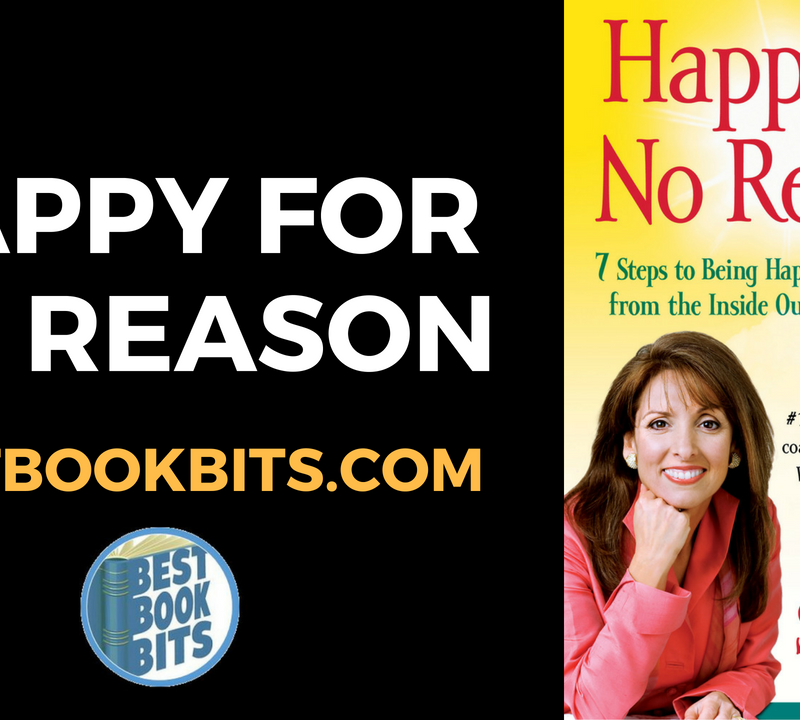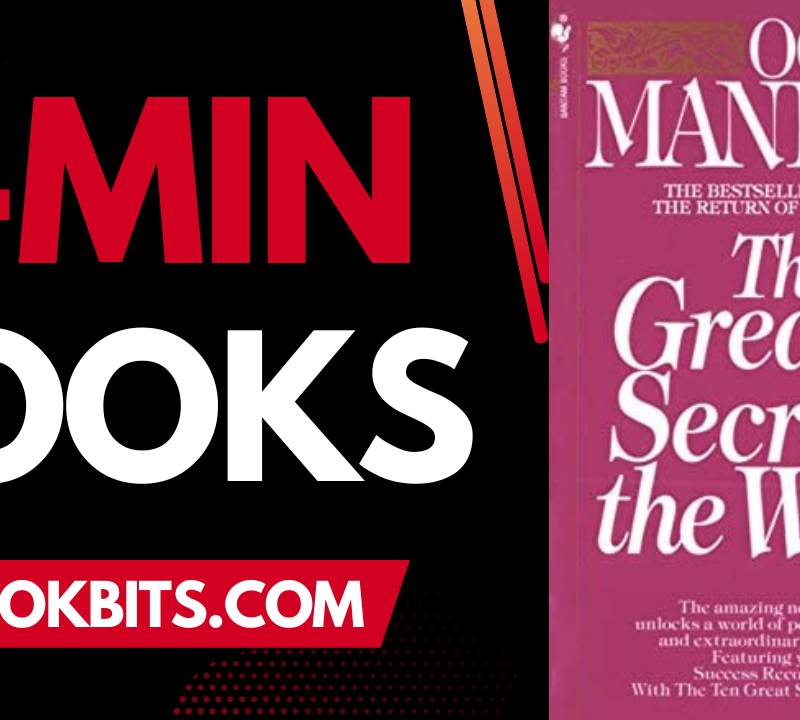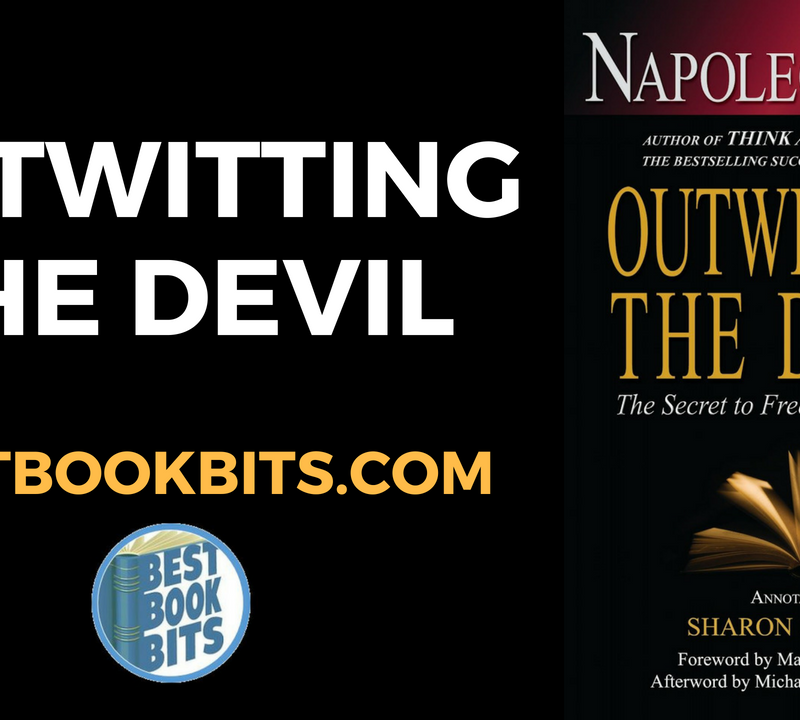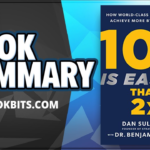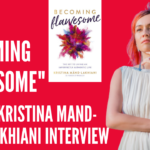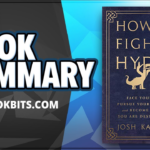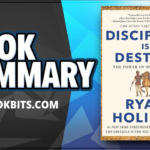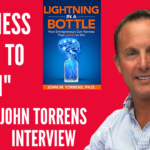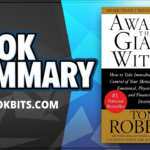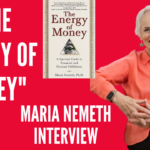★DOWNLOAD THIS FREE PDF SUMMARY HERE https://go.bestbookbits.com/freepdf
? MY FREE BOOK TO LIVING YOUR DREAM LIFE” https://go.bestbookbits.com/first-seven-steps
? SPONSOR BESTBOOKBITS BY USING PATREON https://www.patreon.com/bestbookbits
? SUPPORT BESTBOOKBITS BY CLICKING THE LINKS BELOW
150 PDF Summaries: https://go.bestbookbits.com/150
Coaching Program: https://go.bestbookbits.com/coaching
Subscribe to My Channel: https://www.youtube.com/bestbookbits?sub_confirmation=1
Website: https://bestbookbits.com
Instagram: https://www.instagram.com/bestbookbits
Spotify: https://open.spotify.com/show/0q8OW3dNrLISzyRSEovTBy
Facebook: https://www.facebook.com/michaelbestbookbits
Book Club: https://bestbookbits.com/bookclub/
Mailing List: https://mailchi.mp/d1dfc1907cdb/bestbookbits
Happiness is a Choice You Make: Lessons from a year among the oldest old by John Leland
Aging is an extraordinary process whereby you become the person you always should have been. (David Bowie)
Chapter 1: Meet the Elders
ONE: Surprise of a Lifetime
“Do you know what you want to do when you get old?”
“One of the few advantages of age is that you can report on it with a certain authority; you are a native now, and know what goes on here…Our experience is one unknown to most of humanity, over time. We are the pioneers.
Death has lost its abstraction.
They lived with loss and disability but did not define themselves by it, and got up each morning with wants and needs.
Old age wasn’t something that hit them one day when they weren’t careful. It also wasn’t a problem to be fixed. It was a stage of life like any other, one in which they were still making decisions about how they wanted to live, still learning about themselves and the world.
More people are living past age 85 than at any time in human history, and they are living longer once they get there.
An American who turns 85 in 2018 was born with a life expectancy of less than 60 years.
“The trouble is, old age is not interesting until one gets there. It’s a foreign country with an unknown language to the young and even to the middle-aged.”
Old people often inhabit a world of their own, not particularly pleasant to visit.
People over 60 said fewer then one-quarter of the people with whom they discussed “important matters” were under 36, if you exclude relatives, it dropped to 6 percent.
Americans are more likely to have friends of another race than friends who are more than ten years apart from them in age.
Stop thinking about old people as a problem and start to think of them as an asset, a repository of wisdom and experience.
First lessons from the elders: “That even as our various faculties decline, we still wield extraordinary influence over the quality of our lives.
When you’re old, you have to make yourself happy. Otherwise you get older.
The 6 people interviewed for the book found a level of happiness not in their external circumstances, but in something they carried with them.
If you want to be happy, learn to think like an old person.
The good news about getting old is that there is good news. Older people report a greater sense of well-being and fewer negative emotions than younger people.
As much as we idealize adolescence and young adulthood, older people are more content, less anxious or fearful, less afraid of death, more likely to see the good side of things and accept the bad, then young adults.
Experience helps older people moderate their expectations and makes them more resilient when things don’t go as hoped. When they do have negative experiences, they don’t dwell on them as much as younger people do.
Spend your dwindling time and energy on the things you can still do that give you satisfaction, not on lamenting those you once did but now can’t.
Most of us don’t spend a lot of time with very old people, and when we do, it’s usually about trying to help with their problems, not asking them what makes them happy or fulfilled.
Isn’t part of appreciating the value of a life being able to acknowledge when that value drops?
Old age is the last thing we’ll ever do, and it might teach us about how to live now.
Chapter 2: The Paradox of Old Age
“Right now are you happy?”
Happiness to me is what’s happening now. Not the next world; it’s not the dance you’re going to tonight. If you’re not happy at the present time, then you’re not happy.
Taking satisfaction in what was available right now, not hitching it to the future. My definition looked forward; Fred’s found fulfillment in the present, because the future might not come.
Happiness is a state of living in the present.
Happiness is not in striving for conquest but in relations with other people.
Everything’s moving into the future, but the future doesn’t exist. It’s what we create. Our responsibility for the present moment, that’s morality. The future of humanity or the family or whatever depends on what you do this moment. If you want the next moment where everything will be better, then you’d better do this moment right.
I don’t understand happiness only as someone just always smiling and laughing. It’s more like inner happiness, where you feel you have done everything right in your life, you haven’t made anybody unhappy. You have a certain kind of peace and balance in yourself, and you are not anxious about what will happen the next minute or the next day. You let it go and you don’t worry, and you lead a balanced life.
At 85 and up, only 11 percent live in a nursing home or similar facility, and almost two-thirds say they don’t have trouble caring for themselves; elders’ poverty rate is well below that of the general population.
We study the problems of old age, not the richness.
Older people, knowing they face a limited time in front of them, focus their energies on things that give them pleasure in the moment, whereas young people, with long horizons, seek out new experiences or knowledge that may or may not pay off down the line. Young people fret about the things they don’t have and might need later; old people win now the things they have to the few they most enjoy. Young people kiss frogs hoping they’ll turn into princes. Old people kiss their grandchildren.
Maybe old people live literally like there’s no tomorrow.
We become what our environment encourages us to be.
Old people remembered the positive emotional experiences but not the negative ones.
Chapter 3: Why Older Means Wiser
“When you’re young, you have more worries.”
Their selective memory – vividly recalling the good time and forgetting about the bad – benefited them in their daily lives. If they couldn’t control what was happening with their bodies, they could control their past, shaping it toward a positive outcome.
Past happiness, too, was a choice we can make.
Humans are resilient, and we have a lot to learn from older people, who have survived all kinds of things. Aging isn’t necessarily pretty, but it doesn’t have to be terrible.
Severe memory loss is a horrible thing, and we rightly fear it, but selective forgetting can be the better part of wisdom. When you’re forty-five,it pays to remember all the mistakes you made in your marriage or career, so you can learn from them; at ninety it’s better-wiser-to forget because the memories will only hurt.
Question about regrets. “It’s impossible,” “You can’t go back. Let bygones be bygones.”
When you’re young, the future is so far away, and you don’t know what will happen to you and the world. So when you’re young, you have more worries than the elderly. But I don’t worry now.
Imagine that: to be free of the future, meaning the sum of all things that probably won’t happen, minus the one that will, which is one’s death. Even if just for a minute, the feeling is like that of first flight, weightless and free. Most of us live with this future every day, laboring under its weight. To think like an old person is to journey unencumbered.
Changes in their values as they got older. One was that they became more selective about how they spent their time and whom they spent it with.
They became less self-concerned, and more aware of being part of a larger whole. Instead of being lonely, they valued having time alone for contemplation.
In his surveys of people ages 74 to 104, asking how their values had changed since they were 50, nearly three-quarters agreed with the statement “Today I am less interested in superficial social contacts,” and two-thirds said, “Today I have more delight in my inner world”, 81 percent agreed with the statement “Today material things mean less.” They became more altruistic and more accepting that life included mysteries that they would never solve.
Those who start out wise, wisdom does indeed rise with age, and that wisdom corresponds with a greater sense of well-being.
Wisdom leads to better decision-making and more realistic expectations, less disappointment when things don’t work out.
Choosing happiness was actually the path of least resistance, much easier than the agitation so many manufactured for themselves.
A starting point for wisdom at any age might be to accept that you’re going to die – really accept it – and to feel more contented by the limits, not less.
Two thousand years ago, the Stoic philosopher Seneca argued that we should “cherish and love old age; for it is full of pleasure if one knows how to use it… Life is most delightful when it is on the downward slope, but has not yet reached the abrupt decline.
I often feel that death is not the enemy of life, but its friend, for it is the knowledge that our years are limited which makes them so precious. (Rabbi Joshua L. Liebman)
★DOWNLOAD THIS FREE PDF SUMMARY HERE https://go.bestbookbits.com/freepdf
? MY FREE BOOK TO LIVING YOUR DREAM LIFE” https://go.bestbookbits.com/first-seven-steps
? SPONSOR BESTBOOKBITS BY USING PATREON https://www.patreon.com/bestbookbits
? SUPPORT BESTBOOKBITS BY CLICKING THE LINKS BELOW
150 PDF Summaries: https://go.bestbookbits.com/150
Coaching Program: https://go.bestbookbits.com/coaching
Subscribe to My Channel: https://www.youtube.com/bestbookbits?sub_confirmation=1
Website: https://bestbookbits.com
Instagram: https://www.instagram.com/bestbookbits
Spotify: https://open.spotify.com/show/0q8OW3dNrLISzyRSEovTBy
Facebook: https://www.facebook.com/michaelbestbookbits
Book Club: https://bestbookbits.com/bookclub/
Mailing List: https://mailchi.mp/d1dfc1907cdb/bestbookbits
Chapter Four: Love in the Time of Lipitor
After age eighty-five, only 27 percent of Americans are married, and less than 1 percent with an unmarried partner; 40 percent live alone. In that age group women outnumber men two to one.
Advice on love. Save your money, because everything is expensive.
In numerous studies, researchers have found that seniors who feel useful to others live longer and better, with fewer disabilities, greater mobility, and more resilience to arthritis pain.
The British cultural critic Terry Eagleton writes that the meaning of life lies in learning how to form mutually enriching relationships, like musicians in jazz ensemble, who create melodic openings for the other players by inventing melody lines for themselves. Love, he writes, “means creating for another the space in which he might flourish, at the same time as he does this for you. The fulfilment of each becomes the ground for the fulfillment of the other. When we realize our natures in this way, we are at our best.
Buddhist idea that love is wishing for the happiness of the beloved.
That in a relationship, sometimes taking – allowing the other person to do something for you, rather than insisting on doing it yourself – is also kind of giving.
Old age at some point forces us to accept to help from other people. It can be hard on the ego, perhaps, because it means acknowledging that we are not in control of the world. But it also gives something valuable to the people who help us.
Happiness wasn’t something esoteric but an appreciation of the things already available in our lives.
How to be happy? Here was a start. Accept whatever kindnesses people offer you, and repay with what you can. Let a friend buy you lunch, then do her a solid in return. You’ll benefit from the favors you receive, but even more from the ones you perform. Don’t begrudge the people who need you; thank them for letting you help them. Give up the obsession with self-reliance; it’s a myth, anyway.
Chapter Five: On the Other Hand…
Finding a mate isn’t as important as keeping strong social ties, and these are only valuable if they are positive in nature; being in a bad relationship or spending time with toxic relatives is no better for elders than for young people.
Bad relationships may be more harmful than good relationships are beneficial.
Couples who get old together tend to say their marriages improve with age. They’re more tolerant of small disagreements, slower to fight, more ready to forgive afterward.
Everybody who has been married a long time feels like walking out at one time or another. But first of all, marriage is a vow that you take and you don’t break it. Certainly not easily.
It is a received wisdom in our time that married people live longer. The logic is compelling: Partners help each other keep medical appointments, follow low-sodium diets, call 911 if one falls; together, they’re less likely to be poor. Companionship is also good for the spirit, especially when our social networks start shrinking.
Married men lived longer. Unmarried women, they found, live as long as their married counterparts, often with more leisure time to devote to themselves.
Widowed women tended to thrive – they lived longer than the still-married women. They built social networks, herded their kids, did all the things they put off when their husbands were ill. Widowed men, on the other hand tended to go quickly.
The secret to a long relationship. “If you’re going to be together, you better have an awful lot in common.
Essence of love, that it lies in what we give freely, not in tallying what we get in return.
Happiness wasn’t outside themselves, waiting to be born, but within, the thing they already had.
Contentment had been there for the grasping, if only I had recognized it.
Chapter Six: More Years, Less Life?
We can think of aging as a process of change, learning to appreciate rewards as we find them. Loss is one of life’s great instillers of wisdom, including the wisdom that finds compensation for the capacities we think we can’t live without.
The mind can grow stronger as the brain gets older. It’s time to stop thinking about the aging of our minds and our brains solely in terms of mental losses, and losses alone. The aging of the mind is equally about gains.
Old age was just a season of life like any other. Today was not much different from yesterday, and tomorrow would not be much different from today.
You lived your life around your circumstances.
My favorite part of the day is waking up in the morning and thanking God for another day.
Old age is a concept largely defined by the people who have never lived it.
We’re all on short time; older people just understand this more viscerally.
I think sadness is when you’re concentrated on one particular bad incident that’s happened.
PART 2: THE LESSONS
Chapter Seven: The Lessons of Fred
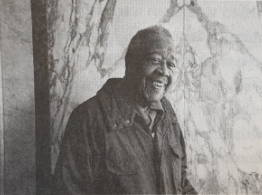
“My purpose is to live, be happy, enjoy life, talking. Having a good time with friends. Go to church on Sunday. Associate, go out to dinner once in a while. And the days will go by fast.” (Fred Jones)
Don’t let your environment limit your vision.
Sacrifice is the supreme act of love.
Problems were only problems if you thought about them that way. Otherwise they were life – and yours for the living.
Here was a lesson in giving up the myth of control. If you believe you are in control of your life, steering it in a course of your choosing, then old age is an affront, because it is a destination you didn’t choose. But if you think of life instead as an improvisation in response to the stream of events coming at you – that is, a response to the world as it is – then old age is more another chapter in a long-running story. The events are different, but they’re always different, and always some seem too much to bear.
The art of living, after all, lies in living the life you have, in the body that you have.
Christianity, Judaism, Islam, Buddhism, Hinduism, and a pile of self-help books all extol the virtues of gratitude. Cicero called it “not only the greatest of virtues, but the parent of all the others.” G.K. Chesterton wrote that “thanks are the highest form of thought, and… gratitude is happiness doubled by wonder.
Some people are grateful seemingly as their default state, even when no one’s looking. Their lives aren’t necessarily better than other people’s, but they find more reasons to give thanks for their small rewards.
Giving thanks makes you happy, which makes you grateful, which makes you happy.
Gratitude can accompany suffering.
Life on earth wasn’t supposed to be perfect, it was just supposed to be life – miracle enough when you thought about it.
Chapter Eight: The Lessons of Ping
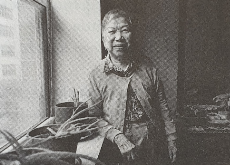
“We never talk about dying. What’s the use? When you get old you have to die. We go downstairs and play cards. At our age, you should prepare yourself. (Ping Wong)
The distinction between “happy in spite of” and “happy if only”, the former being a benefit of old age, the latter a vexation of youth. “Happy in spite of” entails a choice to be happy; it acknowledges problems but doesn’t put them in the way of contentment. “Happy if only” pins happiness on outside circumstances: if only I had more money, less pain, a nicer spouse or house, I’d be happy as a clam. “Happy if only” feed millions of dollars into lotteries or impulse purchases, which provide nothing of the sort.
Happiness is when “you have a nice place to live in, and you have enough money to spend and a good family. That’s it.
You should travel around the world and use up your money for sightseeing.
The worst losses were only devastating if you make them so.
The secret to a long life. “The first things is you must make yourself happy.”
Chapter Nine: The Lessons of John
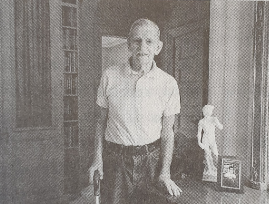
To accept death was to accept life, and to accept life was to live in joy, however dire the circumstances around you.
Chapter Ten: The Lessons of Helen
“I was your age; you were never my age.”
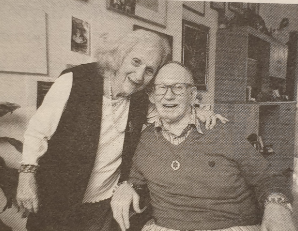
Fulfillment need not be what’s just around the corner. In the end, wisdom lies in finding it in the imperfect now.
Chapter Eleven: The Lessons of Ruth
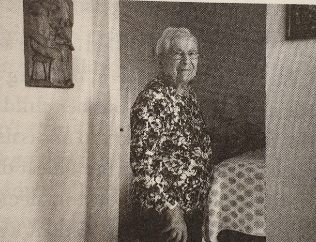
Loss aversion, meaning we place greater value on things we lose than things we gain – even if they’re the same things.
This tendency makes young people overrate the losses of old age, and think they can’t live without the capabilities they have now. Older people, for whom loss is a part of daily life, don’t have this luxury; they either learn to live with decline or they’re sunk.
Think of your life as what you do, not what happens to you.
Our lives everywhere are built on the help of others.
Help is everywhere – it is vanity to think we’re compromises by it.
She lived for what she had and loved, not for what she lost.
Life was short; find the people who really matter, and the relationships that allow you to thrive.
This is a good summation for the arc of life at any age. You never know when the bonus round is going to kick in, but you can prepare for it. In the meantime, whether we’re 25 or 85, we can choose to live in the things that warm us – in love, humor, compassion, empathy, a supportive arm – not because they make life easy, but because they do the most for us when life is hard. As Ruth said, after another tough year, “I wouldn’t have felt bad if I had to go. But I guess I’m glad I didn’t.
Chapter Twelve: The Lessons of Jonas
“You have to trust your angels.”
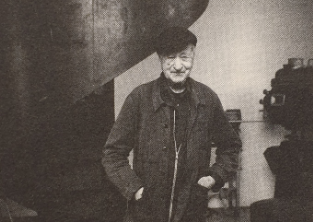
Becca R. Levy, a psychiatrist at Yale, has found striking correlations between people’s attitudes toward old age and how they fare in their later years, with effects starting as early as middle age. In one study, those who had more positive views of old age, measured by how they answered the question, “When you think of old persons, what are the first five words or phrases that come to mind? Were 44 percent more likely to recover from a disability than those with negative age stereotypes. In other studies, Levy and her colleagues found that people with positive views of old age had lower blood pressure, less stress, better physical balance, and were more likely to develop healthy habits and get regular medical care. They also lived an average of seven and a half years longer – a genuine fountain of youth, available without a prescription.
Researchers have long observed that older people who feel a sense of purpose in their lives tend to live longer, fuller, and healthier lives than people who don’t.
Purpose might be an effect of good health rather than the cause.
Having a purpose in life lets us look inward to say, How am I going to live my life, what do I want to accomplish?
The challenge, then, is to find a purpose in life that will sustain you through the latter years.
Something is in you that propels you.
“It’s part of your very essence, what you are,” he said. “There is a need. Like, go back to Greeks and muses. How they explained that, the muse enters you at birth or later, music or whatever art, and you have no choice. It becomes part of you. You just have to do it.”
Keep dancing. Keep singing. Have a good drink and do not get too serious.
Have you ever thought about how amazing, really amazing, life is?
What I learned in my year among the oldest old: to shut down the noise and fears and desires that buffet our days and think about how amazing, really amazing, life is.
Live as if this future were finite, and the present all the more wondrous as a result.
The neurologist Oliver Sacks, on learning that he had terminal cancer of the liver, wrote that the nearness of death gave him a sudden clear focus, and no patience for anything inessential.
I am applying the ‘butterfly win’ theory to my everyday life. It’s a kind of moral dictum, moral responsibility to keep in mind that whatever I do this second affects what the next second will be. So I try not to do anything negative, which is my best insurance that the world will be better next second, or at least not worse. But of course, my positive action may be undermined by 100 negative actions of others and so it may mean nothing. But I still have to follow that dictum. You can call it optimism.
Epilogue
The elders were all proof that you could live a full and fulfilling life even when the weather turned stormy. So why worry about the clouds in the forecast? Live your life, put on a show, take a chance, give thanks for your failures along with your successes – they’re two sides of the same coin. If we’re living longer, maybe we have an obligation to live better: wiser, kinder, more grateful and forgiving, less vengeful and covetous.
Happiness means seeing the good even in your losses.
★DOWNLOAD THIS FREE PDF SUMMARY HERE https://go.bestbookbits.com/freepdf
? MY FREE BOOK TO LIVING YOUR DREAM LIFE” https://go.bestbookbits.com/first-seven-steps
? SPONSOR BESTBOOKBITS BY USING PATREON https://www.patreon.com/bestbookbits
? SUPPORT BESTBOOKBITS BY CLICKING THE LINKS BELOW
150 PDF Summaries: https://go.bestbookbits.com/150
Coaching Program: https://go.bestbookbits.com/coaching
Subscribe to My Channel: https://www.youtube.com/bestbookbits?sub_confirmation=1
Website: https://bestbookbits.com
Instagram: https://www.instagram.com/bestbookbits
Spotify: https://open.spotify.com/show/0q8OW3dNrLISzyRSEovTBy
Facebook: https://www.facebook.com/michaelbestbookbits
Book Club: https://bestbookbits.com/bookclub/
Mailing List: https://mailchi.mp/d1dfc1907cdb/bestbookbits

